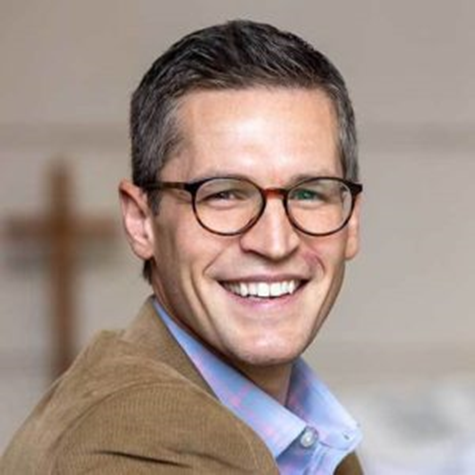Sahar Hashemi, an award-winning entrepreneur, reminded me that we are all entrepreneurs. That’s a big word—entrepreneur. Whether you consider yourself an entrepreneur or not, it’s possible to unlock the startup mentality to help you drive ahead, solve your challenges, or embark upon new initiatives.
Each August, Resurrection partners with the Global Leadership Network as a host site for the Global Leadership Summit. The GLS is a dynamic, two-day event gathering leaders across the globe to learn, share ideas and stories, and to hear from a diverse slate of leading experts from a variety of fields and backgrounds. Each year, I walk away having learned something. I’m sharing some take aways and key learnings here in my posts.
Today, I’m returning to Sahar Hashemi’s talk about how to establish a startup mindset in each of us.
A peculiar thing happens as we age—we lose sight of the creative power within us. Peculiar, isn’t it, that as we gain experience, we lose the creative muscles that inspired us as children to play in the sandbox, build fortresses out of pillows, imagine the impossible out of ordinary objects. We all had a startup mentality at one point in our lives. The other day, I watched my 18-month-old daughter walk her stroller around the house for hours, talking to herself, transporting her toys from one location to the next.
I’m not sure what she was starting, but she was using the startup mentality. My daughter had a problem—how do I get my toys from one end of the room to the other. And, her response reflected a startup mentality—trying to solve the problem, finding a creative solution, and then taking action.
There’s a reason many new church plants reach new people or why a brand-new product sells well. Of course, there are times when they do not—but, we are drawn to the startup, the new thing, the idea that hasn’t been done yet.
Hashemi states, “The startup spirit is not about starting a business. It’s just tiny shifts in behavior. These tiny shifts have an outsized, really deep impact on how you live your life.” Tiny shifts in our behavior, and even our observations of other people’s behavior, can have an outsized impact.
How do you establish a startup mentality? Hashemi offers a few suggestions:
1. Step into the customer’s shoes.
If you’re a church leader, I think this means learning about and understanding your neighborhood. What are their needs, what are their assets, what do they long for and how do they make meaning? What itch, even your own, needs to be scratched?
2. Get out.
In other words, don’t just rely on the research or data in front of you. Talk to people, start conversations, get out to hear and see the needs yourself.
3. Act clueless.
Hashemi argues naiveté is an asset. It’s helpful because naiveté promotes exploration, asking dumb questions, and getting beyond common assumptions. It’s like being a kid with wide-eyed wonder or a tourist seeing a destination for the first time.
4. Start bootstrapping.
Hashemi points out that the word “no” can be a powerful motivator. It forces creativity, scrappiness, and a “get it done” mindset. Hashemi notes that her business received 39 “no” responses from bank managers before a bank took a chance on them. Howard Schultz, who purchased Starbucks from the original founders, received “no” 275 times. People will say no. We all fear rejection, but no doesn’t have to stop us.
When we embrace the startup mindset, we learn something about ourselves. There is something for each of us to do, a problem to solve, a dilemma that needs a solution, and transformation waiting to take place. Therein, we find purpose.
What are you getting started today? If you started something yesterday, try it again!

Joshua Clough served as Location Pastor for Resurrection Overland Park. He completed his doctorate in Practical Theology and Leadership at Fuller Theological Seminary. He runs marathons, ultra-marathons, and because he grew up in Seattle, drinks a lot of coffee.